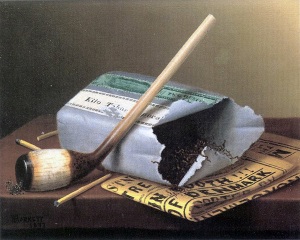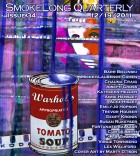Your long, energetic sentences are packed with information, and yet easy to negotiate. Is this a characteristic style?
I’m happy they’re easy to negotiate, because this style probably is hard-wired in me to some degree. I seem to instinctively enjoy writing sentences that have that sort of ongoing pulse, also reading them. In a Cormac McCarthy, Faulkner or Garcia Marquez work, some of those dense pages feel like word-pools inviting me to jump in and refresh my attention span.
You say that Krochmal and Spitzmann had come to blows before, but I get the feeling that Krochmal’s diagnosis really changed the quality of their conflict. Can you say more about this change?
The diagnosis was definitely a big, subversive change. Suppression and the isolating effect of illness are themes that interest me, because of the faulty assumptions and conflict they can produce. In this case, Krochmal’s condition and his withholding of it, and Spitzmann’s hesitation to query Krochmal, lead to impulsive action, disagreement and an irreversible outcome.
Would things have been different if Krochmal had confided in Spitzmann?
Revisions of the story include a version in which Krochmal was not ill, another in which he reveals his condition but Spitzmann doesn’t believe him, and an awful one where Krochmal’s revelation leads to a weepy male-bonding moment that totally nauseated me when I reread it. But even in that version the ending was pretty much the same, because regardless of events, the friendship seemed to be unavoidably escalating to some sort of conclusive test.
What are you working on now?
Stories that will go into my MFA thesis. They’re longer in form but I’ve thought about including some flash, as there are collections like Hemingway’s In Our Time or Peter Orner’s Esther Stories that I admire for how beautifully they integrate both flash-length and longer stories .
How did you get involved in writing flash fiction?
Practical necessity. A few years ago I had an eye problem that for a time severely limited my ability to focus on a screen. Flash became a way to try and write stories that felt complete under the constraints, and I’ve been attracted to the form’s challenges and potential ever since.



 The core workshop of SmokeLong Fitness is all in writing, so you can take part from anywhere at anytime. We are excited about creating a supportive, consistent and structured environment for flash writers to work on their craft in a community. We are thrilled and proud to say that our workshop participants have won, placed, or been listed in every major flash competition. Community works.
The core workshop of SmokeLong Fitness is all in writing, so you can take part from anywhere at anytime. We are excited about creating a supportive, consistent and structured environment for flash writers to work on their craft in a community. We are thrilled and proud to say that our workshop participants have won, placed, or been listed in every major flash competition. Community works.